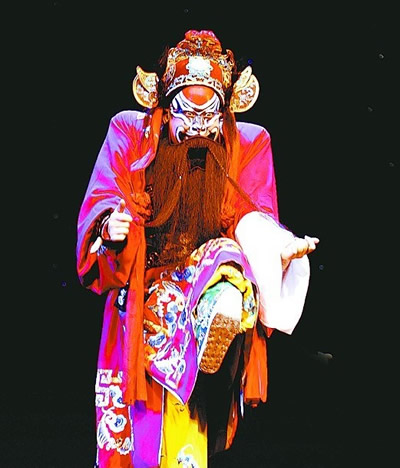|
 |
| Zhong Kui, a mythical Chinese figure who was able to command devils |
The classic Hebei Bangzi play Zhong Kui, played by Hebei performers, was put on in Liaohe Grand Theater in Yingkou city, Liaoning province on August 10 to a crowd that overflowed the auditorium. Hebei Bangzi is a type of traditional Chinese opera. Zhong Kui is a mythical Chinese figure who was able to command devils.
The play is part of the First Classic Repertoire Tour throughout the Country, held by the Culture Ministry to use the best classic plays for guiding stage craft. By increasing Hebei Bangzi’s publicity and influence through the tour in north China, Hebei Bangzi Theater wants to expand its market beyond Hebei. According to Wang Xiaoying, director of the Hebei Bangzi Theater, the play Zhong Kui will be performed 46 times in Beijing, Tianjin, Liaoning, Jilin and Helongjiang.
The tour of Zhong kui made its debut in Yingkou on August 9. It was the first time for most of the audiences to watch Hebei Bangzi.
The debut was highly acclaimed by Yingkou locals and so many people swarmed to the theater, even the aisle was full of standing viewers when the second play was performed. After the play finished, many stayed to take photos with Wu Guiyun, the leading actress.
Background information
Hebei Bangzi is a genre of Chinese opera from the northern province of Hebei. It is derived from Qinqiang and Shanxi Bangzi operas, which were introduced to Hebei during the middle of the Qing Dynasty (1644-1912). There are more than 500 stories used in Hebei Bangzi. Zhong Kui is one of its classic plays.
Traditionally regarded as a vanquisher of ghosts and evil beings, and reputedly able to command 80,000 demons, Zhong Kui’s image is often painted on household gates as a guardian spirit.
By Li Jing and Liu Xi (Chinadaily.com.cn)
|